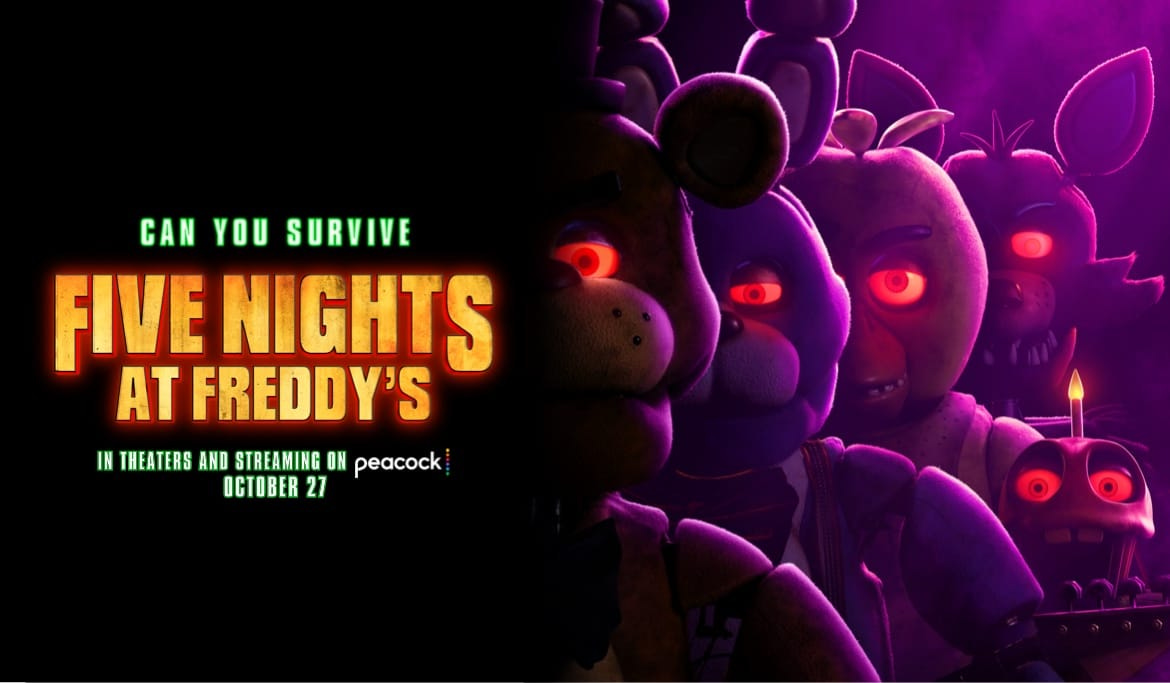How Five Nights at Freddy's foretells the future of franchises
Enter the fanverse.
Join the 900+ founders, investors and operators who get these essays first.
The runaway success of the Five Nights at Freddy’s movie has taken many by surprise.
Just ten days after its release, the film is already the highest grossing horror movie of the year and the most streamed movie of all time on Peacock.
In part, this is a yet another story about the rising primacy of video game IP. From adult-oriented prestige television to family entertainment, this year has witnessed the power of video game universes brought to life on the big and small screens.
This is not especially surprising - these are huge brands with large fan bases, and they are finally being treated as such.
In the case of FNAF, though, I think there is something else going on - and if I’m right, it’s a sign of things to come.
Enter the Fanverse
FNAF is unusual in the extent to which it has embraced its fans as both creative and commercial partners.
The game is an outlier in terms of its sheer amount of fan-created content: there were well over 2,000 fan games listed on GameJolt way back in 2015, along with countless videos, fan fiction and more or less any other kind of content you can think of spread across YouTube, Reddit and other platforms.
After noticing the number of fan-produced games and other content, FNAF creator Scott Cawthon launched the Fazbear Fanverse Initiative.
In its Reddit announcement he describes the project as follows:
A giant collaboration involving several fangame creators who have made some of the most popular fangames over the years here in the community. It’s a project that’s designed to invest into those franchises, give back to the developers, and hopefully bring new entries to those franchises as well!
There have been some great fanmade spinoff universes created in this community, and I want to see them keep going; that’s why I’ve put some my own cash toward development of new games in those game series. However, I’m going to stay OUT of the development side of things so that these creators can do their thing. They’re going to develop these games and interact with the fanbase just as they would have normally, and when the games are done, they’ll be released on GameJolt for free, just like normal. The difference now is that they’ll also be bundled up with other games from the same series, such as the classic versions, or remakes, or minigames, and sold on most major consoles and mobile as well (at least that’s the plan). Did I mention there may be some toys and other merchandise of these fangames too?
In an age of audience fragmentation in which it is increasingly difficult to aggregate attention at scale, this strikes me as an extremely effective way to accelerate the growth of a large fanbase for your IP.
Here the key things that strike me as distinctive about the “fanverse” approach to IP development:
Permissive not Protectionist: A permissive attitude towards fans creating derivative works in the universe, characterized by a default tolerant approach rather than a legalistic or restrictive one.
Community-Driven not Top-Down: The community is encouraged to actively contribute to the “cinematic universe”, rather than the universe being solely managed by an elite coterie of creatives in the direct employ of the IP holder.
Creator as co-publisher: The creator partners with and supports select creators to give greater prominence and commercial opportunity to their work.
Pros and cons
There are several advantages to embracing the fanverse. It’s incredibly capital-efficient, for one. If you make something people love, they are going to create content inspired by it - there is much more to be gained from harnessing that passion than resisting it and creating resentment in its place.
It’s also really hard to aggregate eyeballs in one place these days: it seems likely that FNAF has benefited hugely from the multiple onramps the fanverse has built into their universe - there are likely thousands upon thousands of people in the audience for the movie that first encountered FNAF through a piece of content that was created by someone else.
There are negatives, of course, not least of which is that most fan-created content is terrible. Lack of control means people will do things with your content that you don’t like, and partnering with third party creators can mean exposing yourself to their potential controversies.
Not all IPs are a good fit for this approach, nor will many creators want to embrace it.
But it seems clear that the fanverse played a major role in the success of Five Nights at Freddy’s, and it won’t be the last.


